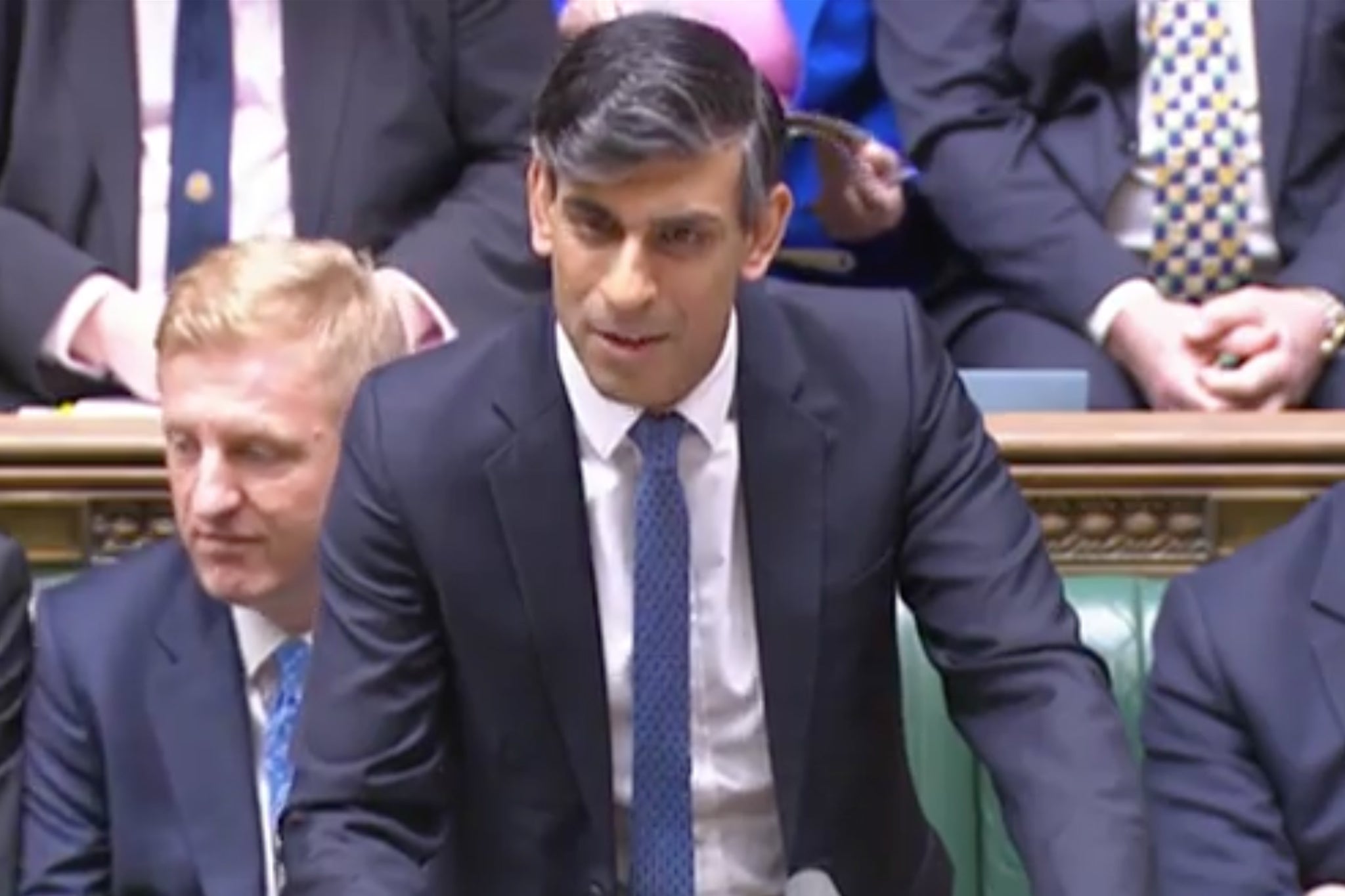If the Tories really want to stamp out prejudice, they should first start with their own party
After its woefully sluggish handling of the Tory donor racism scandal, the governing party looks dangerously out of touch with British values, says Andrew Grice


Rishi Sunak got there in the end, but it should not have taken 24 hours to condemn the Conservative Party donor Frank Hester’s alleged attack on Diane Abbott as “racist and wrong”. The prime minister was bounced into it by Kemi Badenoch, his business secretary and equalities minister, who spotted an opening to do the right thing. The approach of Prime Minister’s Questions today will also have concentrated sluggish minds in Downing Street.
That Badenoch got there first is another sign of Sunak’s waning authority. His political judgment has been shown to be woeful, and Tory MPs are again calling the abilities of his No 10 operation into question.
There was a similar delay in criticising Lee Anderson’s attack on Sadiq Khan as Islamophobic. As with Hester’s reported remarks, ministers were sent out to media interviews with an indefensible line that was never going to hold. The approach seems to be: “Let’s see if we can get away with it, and we’ll assess later.” It might have worked in a bygone age, when politicians could wait for tomorrow’s front pages, but in the social media era, they need to respond instantly. If they don’t, the damage is done, and it has been.
It’s not enough for Sunak to remind us he is “living proof” that there is no place for racism in public life because he is the first British-Asian PM and leads one of the most ethnically diverse cabinets in history. Yes, a success story the Tories can be proud of – but he has got to prove it.
Sunak won’t be taken seriously on this issue unless he can show he is tackling racial prejudice in the Conservative family. His government appears colour blind, giving the impression that racism is racism only if it fits his party’s worldview; it can call out antisemitism in its sleep, but is remarkably reluctant to use the label “Islamophobia”.
Sunak should find a way to ensure Hester’s £10m donation to the Tories is returned – even though it has probably already been spent as the party gears up for the election – and declare the party won’t accept any more money from him. (Hester said in a statement that he “regards racism as a poison which has no place in public life”; his spokesperson said the statement is not a confirmation of his remarks about Abbott five years ago, reported in The Guardian).
The controversy over Hester, as well as Anderson’s defection to Reform UK, have overshadowed “extremism week” on the government’s media grid. Michael Gove, the levelling-up secretary, will set out a new definition of extremism tomorrow, which will determine which groups public bodies can fund and engage with.
The terrible events in Gaza and Israel have raised important issues at home, and Sunak is right to address them. Gove’s new definition is expected to target groups or individuals deemed by a new unit in his department to promote an ideology based on intolerance, hatred, or violence aiming to overturn the freedom and rights of others; to undermine our liberal system of democracy; or deliberately create a permissive environment for others to do so.
However, after talks with Gove, the archbishops of Canterbury and York warned that the new top-down definition will risk creating “more division” and “disproportionately targeting Muslim communities, who are already experiencing rising levels of hate and abuse”.
Sunak should tread very carefully in such sensitive territory; it would be much better to seek a cross-party consensus than impose the new definition. It is the wrong time to do this with an election coming, as a new government might undo it, while the move polarises the debate in the meantime.
The temptation for the Tories will be to politicise the issue in another attempt to wrong-foot Labour – for example, by reminding voters of the party’s links with the Muslim community and its antisemitism problem. This was the secondary aim of Sunak’s statement in Downing Street after George Galloway won the Rochdale by-election. Tory insiders gave the game away by claiming that Keir Starmer could not have made Sunak’s statement because of the backlash it would provoke in his party. (They may be underestimating Starmer again).
Sunak also strayed over the line when he claimed last month that “growing consensus that mob rule is replacing democratic rule” because of the protests against the war in Gaza. Some senior Tory MPs privately believe that straying into this minefield is not worth the candle, and that it would be better to stick to the government’s message on the economy. They are right.
I’m sure Sunak genuinely believes he has a duty to safeguard our democracy at a dangerous moment. But he will not be taken seriously unless he finally displays strong leadership in tackling prejudice closer to home – in his own party.
Join our commenting forum
Join thought-provoking conversations, follow other Independent readers and see their replies
Comments